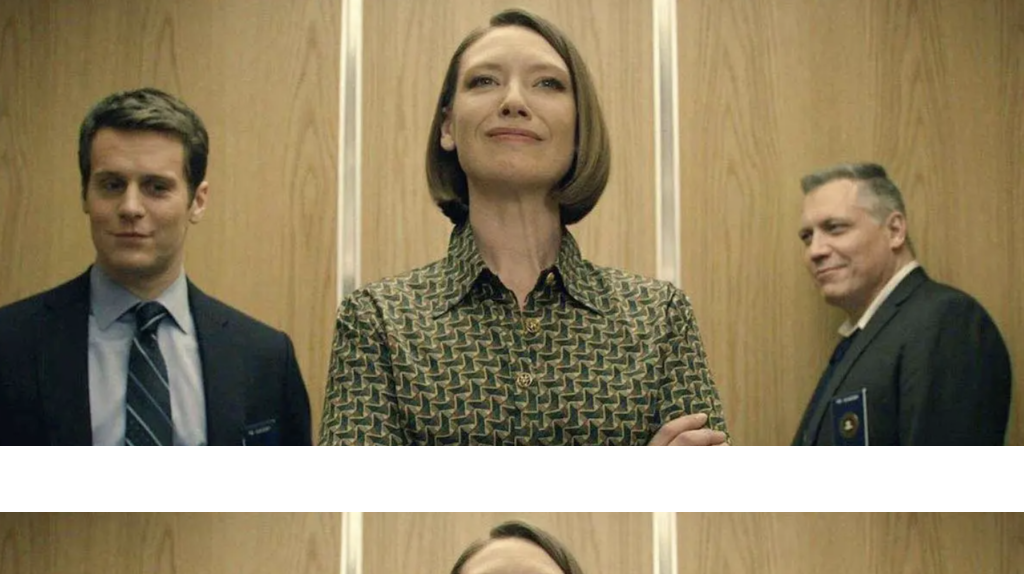David Fincher’s Mindhunter, the Netflix series based on the book Mindhunter: Inside the FBI’s Elite Serial Crime Unit, quickly became a cult favorite during its debut in 2017. Sadly, the acclaim wasn’t enough to keep up with overwhelming production costs and time consumption. According to Le Journal de Dimanche, Fincher found himself in a quandary whether to continue the series as he shifted his focus onto the biopic, Mank. In the end, he finalized the decision to shelve the project for good.
A brief look at Mindhunter and criminal profiling
The intention of Mindhunter is unlike most crime dramas or psychological thrillers we see today. Rather than glamorizing serial killers of the 1970s, the series follows FBI agents Holden Ford and Bill Tench, portrayed by Jonathan Groff and Holt McCallany, along with FBI psychologist, Wendy Carr (Anna Torv, The Last of Us).
The agents seek the motives of killer instincts from the most notorious murderers of the time. Even with creative liberties taken, criminal profiling itself was not such a departure compared to reality. The FBI’s Behavior Sciences Unit opened in 1974, investigating the surge of criminal activity—particularly homicides.

Mindhunter came at a perfect time, just as true crime began absorbing nearly every medium out there. From books and movies, to streaming series and podcasts, it’s hard not to trip and find a show detailing every bit of a murder mystery. Most of these revolve around sensationalized serial killers such as Ted Bundy and Jeffrey Dahmer. However, Fincher’s series does not focus on such individuals nor their crimes.
On the contrary, the focus relies on behavior, unlocking motive using psychological analysis. Though not originally coined as “profiling,” this phenomenon dates back to Jack the Ripper. During the 1970s, recycled questions would flesh out pertinent information from criminals in order to find connections between them.
Mindhunter summed up
In season one, the inexperienced Agent Ford partners up with the seasoned agent, Bill Tench. Carr provides her psychological knowledge to help the agents set up interviews with Edmund Kemper (Cameron Britton) and other well-known serial killers in order to help solve ongoing homicide cases.
While Kemper’s insight is detrimental, he still possesses an abnormal psyche, which Ford seems to have forgotten. His inexperience with psychology cracks when he becomes enamored with the profiles he should have been studying, empathizing with Kemper. In the last episode, Kemper uses this against Ford by threatening him, causing Ford a major panic attack that lands him in the hospital at the end.

Season two switches settings when the body count begins to rise in Atlanta, Georgia. Ford and Tench want to connect two adult killings to child murders in the same area, but find it difficult to present any evidence to support this hypothesis. Eventually, their careers spill into their personal lives when a body shows up at a house where Tench’s wife is the realtor.
Carr hits a roadblock when she’s told to analyze her work rather than complete more interviews. Even with the capture of the suspect in the season finale, more questions than answers remain about the BTK strangler, which would have been an integral subject for season three.
How did we get here?
In 2020, Fincher placed the series on an indefinite hold when Groff, McCallany, and Torv were released from their contracts. Fincher found it unfair to keep them when he felt unsure about the show’s future. Even with high ratings and numerous accolades, viewership did not meet Netflix’s expectations.
“I’m very proud of the first two seasons. But it’s a very expensive show and, in the eyes of Netflix, we didn’t attract enough of an audience to justify such an investment (for season three). I don’t blame them, they took risks to get the show off the ground, gave me the means to do Mank the way I wanted to do it, and they allowed me to venture down new paths with The Killer. It’s a blessing to be able to work with people who are capable of boldness. The day our desires are not the same, we have to be honest about parting ways.”
— David Fincher to Le Journal du Dimanche
Despite the ending of the series, perhaps writers will be motivated to take a page from Fincher’s book for future projects. When it comes to true crime, maybe less is more (in terms of violence) to avoid exploiting victims.
Shifting the narrative of telling these stories helps us understand the consequences of true crime obsession, too. Fortunately, we will have more Fincher content to look forward to! After 16 years in the making, Fincher’s next crime project, The Killer, will release November 10, 2023.











